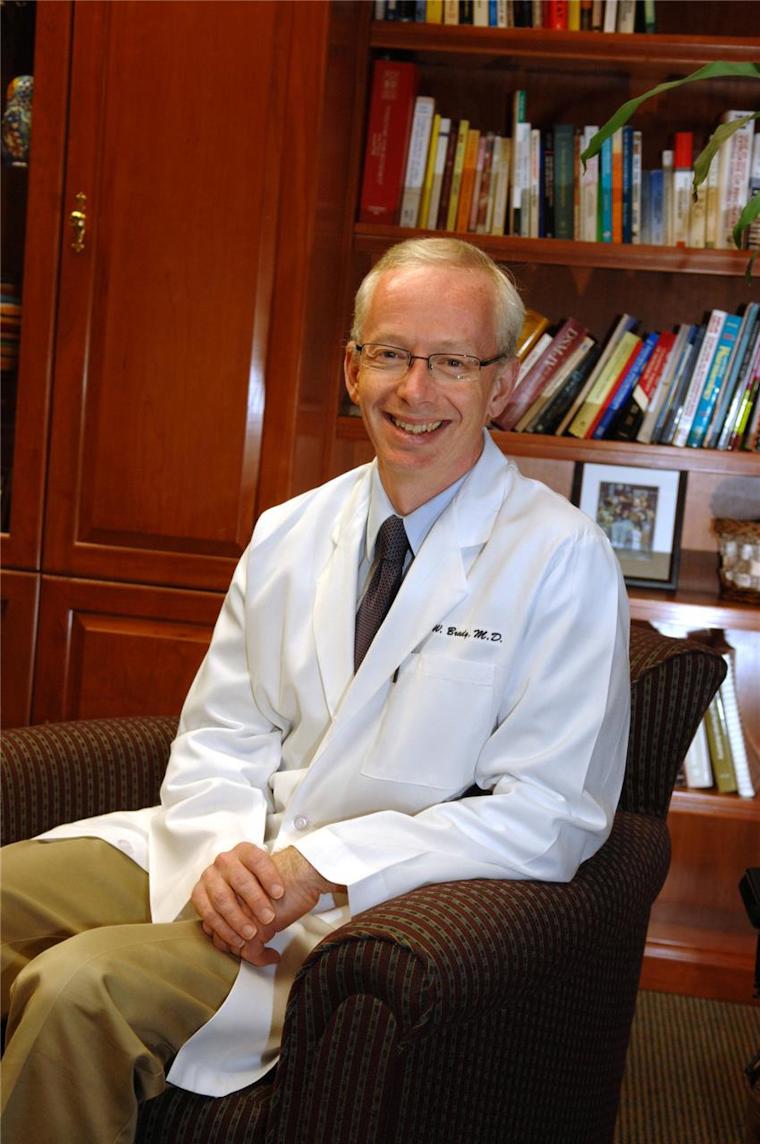Drs. Bernstein, Brady, and Brigham, members of the ACGME's Well-Being Task Force
The ACGME is committed to supporting graduate medical education programs to develop a Culture of Well-Being, not just the absence of burnout and depression. The central feature in this culture is the well-being of all members of the health care team, including faculty and staff members, and residents and fellows.
To that end, a Well-Being Task Force of volunteer experts was convened and among its efforts, committed to providing the field with tools and resources to assist program directors in establishing, assessing, and monitoring their local well-being initiatives. Another effort was the collection of baseline resident/fellow and faculty member well-being data for use by programs and Sponsoring Institutions – to provide actionable information for use on a local level.
When Section VI of the revised Common Program Requirements went into effect in July 2018, they emphasized both programmatic and institutional responsibility for prioritizing physician well-being, ensuring protected time with patients, minimizing non-physician obligations, ensuring an environment free of harassment and coercion, and providing residents and fellows with time for personal medical and dental care. The requirements reflect the ACGME's commitment to helping physicians find meaning and joy in their work, while ensuring that programs and institutions provide the resources necessary for them to take care of themselves and their patients.
For these reasons, we added well-being questions to our existing Annual Resident/Fellow and Faculty Surveys last year. This was done so that information and insights from the results could be provided to programs and institutions to build and improve their local well-being efforts and thus, hopefully, make it easier to comply with the well-being requirements. The questions were specifically designed to measure well-being in residents; we decided to ask faculty members the same questions. The goal was to provide information so that institutions and programs could make better comparisons, draw conclusions, and take actions, if necessary.
The survey results are not collected for publication or for accreditation purposes, and the information from both surveys is aggregated and managed confidentially and anonymously.
In May 2018, aggregated program-level and national reports, de-identified at the individual level, were provided to the institutions and programs that met the minimum response requirements to assist them in conducting a self-assessment. These minimums, which include both percentage and number of responses, were established to ensure anonymity. So the implication for not meeting those minimum response rates was that the program and institution did not receive the aggregated report.
Following the 2018 surveys, as well as in response to feedback from the community, the 2019 Resident/Fellow and Faculty Surveys were updated. Questions were revised to improve the survey and to provide more useful information for programs and institutions to make analyses and comparisons.
We have been and remain committed to continuing and strengthening our work with the graduate medical education community to improve physician and provider well-being, and to identify the best tools and resources to assist programs and institutions in their ongoing efforts to create a clinical learning environment based on a culture of well-being.
We hope you will continue to send us your feedback. Review our Physician Well-Being Tools and Resources, and please e-mail any questions or comments to wellbeing@acgme.org.
|
ACGME Common Program Requirements This ACGME commitment, beyond just provision of accreditation services, is contained in the Background and Intent of Section VI. Of the Common Program Requirements. “Background and Intent: The ACGME is committed to addressing physician well-being for individuals and as it relates to the learning and working environment. The creation of a learning and working environment with a culture of respect and accountability for physician well-being is crucial to physicians’ ability to deliver the safest, best possible care to patients. The ACGME is leveraging its resources in four key areas to support the ongoing focus on physician well-being: education, influence, research, and collaboration. Information regarding the ACGME’s ongoing efforts in this area is available on the ACGME website. As these efforts evolve, information will be shared with programs seeking to develop and/or strengthen their own well-being initiatives. In addition, there are many activities that programs can utilize now to assess and support physician well-being. These include culture of safety surveys, ensuring the availability of counseling services, and attention to the safety of the entire health care team. “ ACGME Common Program Requirements (VI.C Well Being) ACGME Common Program Requirements (VI.C Well Being) Programs, in partnership with their Sponsoring Institutions, have the same responsibility to address well-being as they do to evaluate other aspects of resident competence. This responsibility must include: VI.C.1.d) policies and programs that encourage optimal resident and faculty member well-being; and, (Core) |






